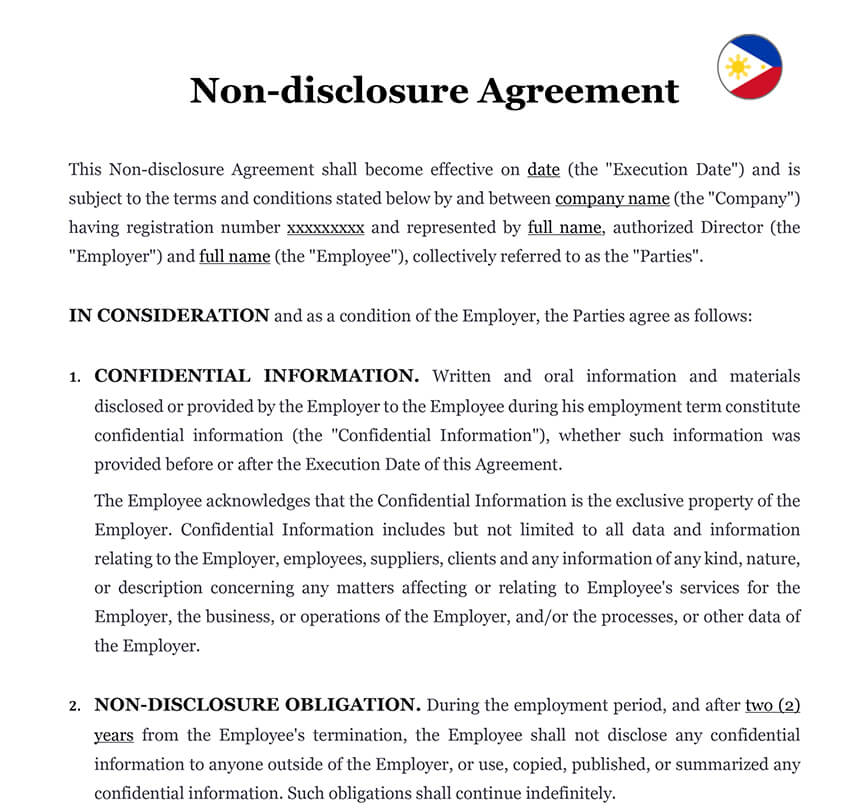
This Employee Confidentiality Agreement is used to protect your company from employees disclosing confidential information.

Word Document (.docx)

Ready to use legal template
Drafted by experienced lawyers
Compliant with Filipino law
Ready to use legal template
Drafted by lawyers
Compliant with Filipino law
Home › Employees › Employee confidentiality agreement
Using an Employment Confidentiality Agreement in the Philippines is important for protecting a company’s trade secrets, proprietary information, and Intellectual Property from unauthorized disclosure. It can help prevent employees from using confidential information to gain a competitive advantage or to benefit a competing business. Confidentiality agreements can also help build trust between employers and employees by ensuring that sensitive information remains confidential. Additionally, confidentiality agreements are often required by investors, partners, and customers as a condition for doing business, so having one in place can help companies build and maintain important relationships.
An Employment Confidentiality Agreement is a legal contract between an employer and an employee in the Philippines that aims to protect the employer’s confidential information from being disclosed to unauthorized parties. This agreement typically covers a wide range of confidential information, including trade secrets, proprietary information, financial data, and customer lists.
Under this agreement, the employee agrees not to disclose any confidential information to third parties, including competitors, during and after their employment. The agreement may also include provisions that restrict the employee from using the confidential information for personal gain or for the benefit of others.
Employment Confidentiality Agreements are generally used to protect the Intellectual Property and trade secrets of the employer. This can include, for example, customer lists, business strategies, product designs, and manufacturing processes. In the event that an employee breaches the confidentiality agreement, the employer can seek legal remedies, such as injunctive relief, damages, or both.
It’s important to note that Employment Confidentiality Agreements in the Philippines must comply with the country’s Labor Laws, particularly on the employee’s right to privacy and freedom of expression. Employers must ensure that the terms of the agreement are reasonable, clear, and not overly restrictive, and that employees fully understand what they are agreeing to before signing the agreement.